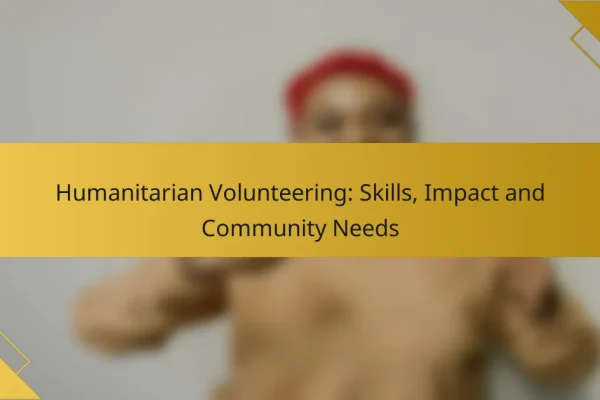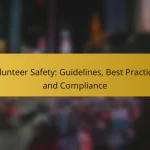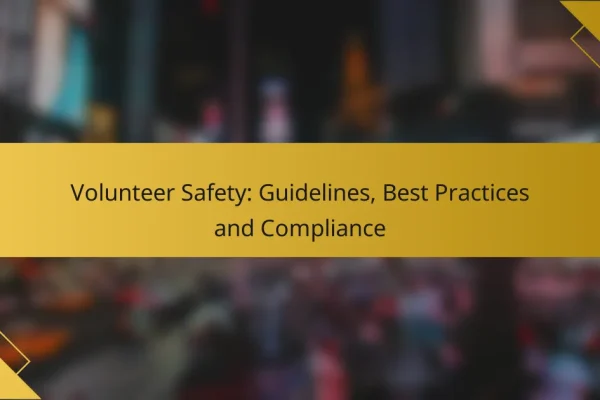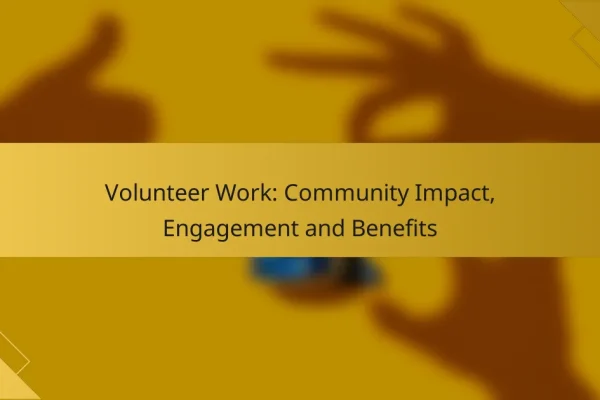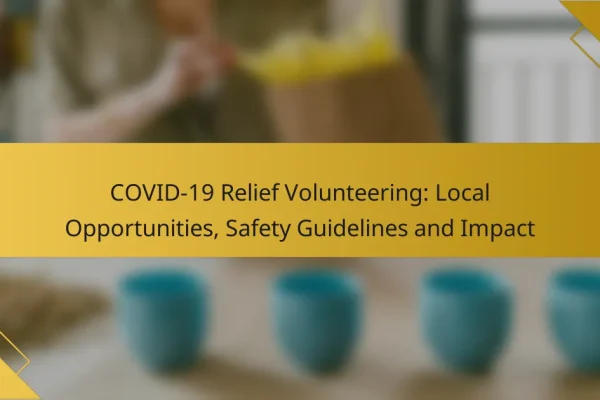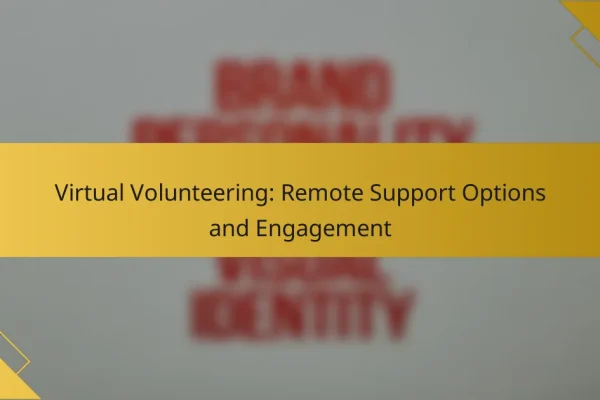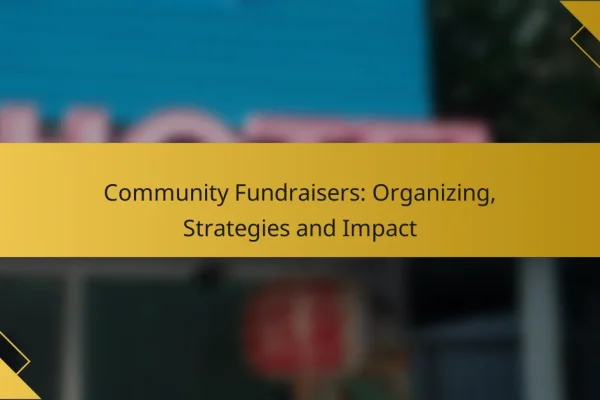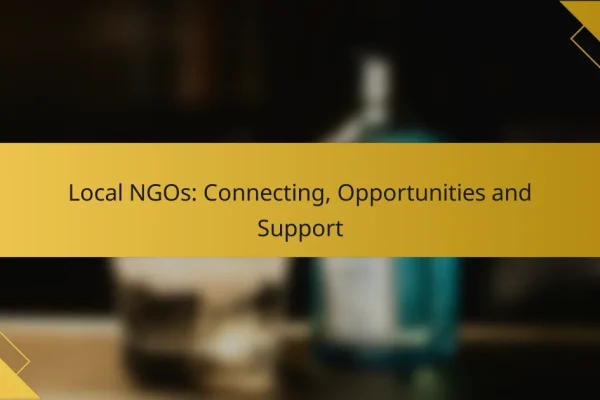What are the best volunteer opportunities in humanitarian aid?
The best volunteer opportunities in humanitarian aid include programs that allow individuals to make a significant impact on communities in need. These opportunities often involve working with established organizations that focus on various aspects of humanitarian assistance, from medical aid to housing support.
International Red Cross volunteer programs
The International Red Cross offers a variety of volunteer programs that focus on emergency response, disaster relief, and community health initiatives. Volunteers can participate in local chapters or deploy internationally, depending on their skills and availability.
To get involved, individuals typically need to complete an application process, which may include background checks and training sessions. Opportunities range from providing first aid at events to assisting in refugee camps.
Doctors Without Borders field missions
Doctors Without Borders (Médecins Sans Frontières) provides medical assistance in crisis situations worldwide. Volunteers, particularly healthcare professionals, can join field missions that deliver urgent medical care in areas affected by conflict or epidemics.
Applicants should have relevant medical qualifications and be prepared for challenging environments. Missions can last from a few weeks to several months, and volunteers often work alongside local staff to maximize impact.
UN Volunteers assignments
UN Volunteers offers assignments that support peace and development initiatives globally. Volunteers can work in various sectors, including education, health, and environmental sustainability, often in collaboration with local communities.
Assignments can be short-term or long-term, and applicants should possess skills relevant to the specific project. The UN provides training and support to help volunteers adapt to their roles effectively.
Habitat for Humanity projects
Habitat for Humanity focuses on building affordable housing for those in need. Volunteers can participate in construction projects, fundraising efforts, and community outreach programs.
Typically, no construction experience is required, as training is provided on-site. Volunteers can work on local builds or join global initiatives, making a tangible difference in housing stability.
Local food bank initiatives
Local food banks offer numerous volunteer opportunities, including sorting and distributing food, organizing food drives, and assisting with administrative tasks. These initiatives directly address food insecurity in communities.
Volunteering at a food bank usually requires a commitment of a few hours per week. It’s a great way to engage with the community and support those facing hunger, especially during peak seasons like holidays.
How can I get involved in humanitarian aid volunteering?
To get involved in humanitarian aid volunteering, start by identifying organizations that align with your interests and skills. You can apply through official channels, attend recruitment events, and network with local NGOs to find suitable opportunities.
Apply through official websites
Many humanitarian organizations have dedicated websites where they list volunteer opportunities. These sites often provide detailed information about the application process, requirements, and available positions. Look for sections labeled “Get Involved” or “Volunteer” for the most relevant information.
When applying, ensure your resume highlights relevant skills and experiences. Tailor your application to each organization, emphasizing your commitment to humanitarian work and any specific skills that may be beneficial, such as language proficiency or medical training.
Attend volunteer recruitment events
Volunteer recruitment events are excellent opportunities to meet representatives from humanitarian organizations and learn about their missions. These events may include job fairs, informational sessions, or community gatherings focused on volunteerism. Check local community boards or social media for upcoming events in your area.
During these events, prepare to ask questions about the organization’s needs, the types of roles available, and the commitment required. Bring copies of your resume and be ready to discuss your motivations for wanting to volunteer in humanitarian aid.
Network with local NGOs
Building relationships with local non-governmental organizations (NGOs) can open doors to volunteer opportunities in humanitarian aid. Attend local meetings, workshops, or community service events to connect with NGO staff and other volunteers. Express your interest in helping and inquire about any ongoing or upcoming projects.
Consider reaching out directly via email or social media to introduce yourself and your interest in volunteering. Many NGOs appreciate proactive individuals and may have informal opportunities that are not widely advertised.
What skills are needed for humanitarian aid volunteers?
Humanitarian aid volunteers require a diverse set of skills to effectively respond to crises and support affected communities. Key skills include medical expertise, language proficiency, and crisis management abilities.
Medical and healthcare expertise
Volunteers with medical and healthcare expertise are vital in humanitarian efforts, especially in areas affected by conflict or natural disasters. Skills can range from basic first aid to advanced medical training, depending on the needs of the community.
For instance, a volunteer with nursing or paramedic qualifications can provide essential care, while those with mental health training can offer psychological support. It’s important to assess the specific health needs of the region to determine the appropriate level of medical expertise required.
Language proficiency
Language proficiency is crucial for effective communication in humanitarian aid. Volunteers who speak the local language can build trust and rapport with community members, ensuring that aid is delivered effectively and respectfully.
Consider learning key phrases or basic conversational skills in the local language, as this can significantly enhance interactions. In multilingual contexts, having volunteers who can translate or interpret can also be beneficial.
Crisis management skills
Crisis management skills are essential for volunteers working in unpredictable environments. These skills help individuals assess situations quickly, make informed decisions, and coordinate responses effectively.
Volunteers should be trained in risk assessment and emergency response protocols. Familiarity with local regulations and cultural sensitivities can also improve the effectiveness of crisis management efforts. Regular training and simulations can prepare volunteers for real-life scenarios they may encounter.
What are the prerequisites for volunteering in humanitarian aid?
To volunteer in humanitarian aid, individuals typically need to meet certain prerequisites, including background checks and training. These requirements ensure that volunteers are prepared and trustworthy, which is essential for effective humanitarian work.
Background checks and clearances
Most organizations require background checks to verify the suitability of volunteers for humanitarian roles. This process often includes criminal history checks and may involve reference checks to assess the volunteer’s character and reliability.
Clearances can vary by country and organization, but they are crucial for roles that involve working with vulnerable populations. Volunteers should be prepared to provide personal information and possibly undergo fingerprinting or other verification methods.
Training and orientation sessions
Training and orientation sessions are essential for preparing volunteers for the challenges they may face in humanitarian aid. These sessions typically cover organizational policies, safety protocols, and specific skills needed for the role.
Training can range from a few hours to several days, depending on the complexity of the work. Volunteers should actively participate in these sessions to ensure they understand their responsibilities and the context in which they will be operating.
What are the benefits of volunteering in humanitarian aid?
Volunteering in humanitarian aid offers numerous benefits, including personal growth, skill development, and the chance to make a meaningful impact. Participants often gain valuable experiences that enhance their professional profiles and foster a sense of community.
Personal growth and development
Engaging in humanitarian aid can significantly contribute to personal growth and development. Volunteers often face challenging situations that push them out of their comfort zones, leading to increased resilience and adaptability. This experience can enhance problem-solving skills and boost self-confidence.
Additionally, volunteers may acquire new skills relevant to their careers, such as project management, communication, and cultural sensitivity. These skills can be particularly beneficial in fields like social work, healthcare, and international relations.
Networking opportunities
Volunteering in humanitarian aid provides excellent networking opportunities. Participants often connect with like-minded individuals, professionals, and organizations that share a commitment to social causes. These connections can lead to future job opportunities, collaborations, or mentorships.
Moreover, many humanitarian organizations host events and workshops that facilitate networking. Engaging in these activities can help volunteers build a robust professional network, which can be invaluable for career advancement.
